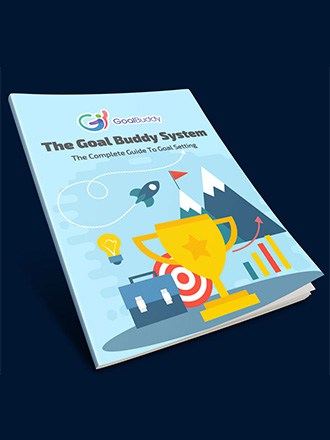Key №2: Vision [excerpts from the book]
What do we want from life? Isn’t that an easy question? Well, maybe so but if we try to answer it in detail then things quickly get complicated. And if we try to write it down then we will find it even harder. Dealing with this is one of the 4 keys we are discussing in the current series of articles. We are heavily relying on our book which goes over the topic in a well-structured but clearly outlined manner.
Vision
“The only thing worse than being blind is having sight but no vision.”
We being “The 4 keys to achieving goals” with exactly these words of Helen Keller.
It’s all about how we see what we want for us in the future. “How” isn’t a concern at this point, only what we actually and truly aim at in the long run.
Why is it so important?
One of the saddest moments we can experience is when we get suddenly hit by the realization that we were going in the wrong direction for a long time (or a lifetime).
We went after things that were not significant and helpful to us. We go after results that were not our real goals. We found ourselves at a place we never intended to be. Or, as the popular notion goes… It’s better to be at the top of a ladder getting over a wall you want to climb than to be at the top of a ladder against the wrong wall.
The difficult question: “What do we want?”
We rarely ask ourselves this. More often than not we tend to avoid doing so or even worse – we fool ourselves that we already know what that is. It is a real challenge to give it an honest and realistic answer.
We simply fail to find the time to carefully think over what is good for us in the long run. Being too busy dealing with the daily battles of life makes it almost impossible. It’s as if we are staring at it and yet we can’t see it at all.
If we do not confront this issue we run the risk of convincing ourselves that everything is perfectly okay.
Getting out of this “bad deal”
Let’s make “What I want” a top priority. It’s just after a few hours and we will be able to identify what we are striving for in each of the important aspects of our life.
You may think that 4-5 hours is a lot, but time flies once you get into the details by doing the exercises and then start writing down your thoughts on the subject.
The role it plays in our system
When it comes to maintaining a consistent performance we rank the vision as second only to the Goal Buddy :
- It has a horizon of at least 30 years (best if it isn’t limited by a deadline at all).
- The major parts of our life (such as health, family, finances, career, etc.) make for the span of our vision.
- It commands the shorter-term objectives. That is, the vision relates to and justifies our goals and strategies in such a manner that they are not self-serving but bringing us closer to the desired objective.
This overarching role means it is an indispensable part of our system.
It gives you the direction
Do you remember what was the Cheshire Cat’s reply when Alice asked which way she should to go? If you don’t care where you end up then it doesn’t matter what your choice is. Or, in other words – you must have a pretty good idea where you want to be at the end of your journey.
When we always have the finish line in mind it is easy to follow the right path. Otherwise, we may wander off and lose years in the wrong career, relationship, etc.
It provides for more confidence and focus on your actions
It helps you figure out if any of your short-term objectives are worth the time and effort. We call this the “30-year filter”. When in doubt you ask yourself the following. “Will this bring me closer to my objective in the next 30 years?”
You just check if the endeavor matches your vision and so you quickly decide what to do. There will not be any hesitation or misplaced efforts.
It works not only for “What do I want?”, but also for “Why do I want it?”
We need to answer honestly and with much care what we want. That will spare us the pointless pursuit of things that are not truly ours. In the end, we will have the strength and motivation to stay on track.
Here is an example from the book:
- What do you want?
- I want a new car.
- Why do you want to achieve with this?
- I want it to be comfortable and safe.
- Why do you want this?
- So I can take longer trips out of town.
- Why is that?
- So that I can take my family on long vacations and travel comfortably.
- Why do you want this?
- To spend more time with my children and to have invaluable experiences and memories.
With this series of inquiries, we gradually peel off the many layers until we get to the heart of the matter.
Why is it long-term?
It’s looking 30 years ahead, and often beyond that.
No one would be happy to be in good health and with enough money only for, let’s say, 30 years. Things like health, money, relationships are for life, right? The human brain, however, works better when there is a deadline, a boundary of sorts.
And how about after 50 years?
The intent here is to get rid of the abstract component of it and to realize much more clearly what we aim for in our future.
And why not 5 years then?
It’s a common mistake that people set a 5 or 10-year timeframe for things as part of their vision. But that’s hardly the case.
Don’t get us wrong, though! There is nothing wrong with a 5-year perspective as long as it is strictly oriented towards the vision. Such objectives are playing the role of “stepping stones” or what we call “key achievements”.
“Everything is so uncertain now. Why bother with something so far in the future?!”
The vision is for the fundamental elements of our lives. Therefore, it should not be easily affected by short-term trends.
We don’t think in terms of what will change but instead, we focus on what will stay the same.
We simply don’t want to be on a Ketogenic diet or rush into the latest management hype for our business. The likelihood that any of these will last longer than a couple of years is quite slim.
What we want, and need becomes as obvious as simple. We have to be healthy and be happy in our relationships, personal or professional growth.
The concept of long-term isn’t something carved in stone
This is the title of one of the chapters in our book, and we want to point out a crucial factor here:
Many of us are reluctant to sit down and make long-term decisions. We see this as a serious limitation. But the fact is that visions can change and evolve with time.
In some situations, a complete U-turn might be a reasonable thing to do. Each 90-day review gets us some new information and if it keeps pointing in a different direction we might very well re-assess our course of action.
As long as the goals are in sync with our vision we can observe a significant increase in our positive experience as well as various ideas and overall progress. Even if it turns out that in the end, this is not “our thing”, there is no problem. On the contrary, we will have the confidence that it is worth pursuing.
How to find your vision?
It might be easy, but it still takes time.
The first thing to do is to identify the most relevant aspects of your life. You can take advantage of the exercise called “The Wheel of Life” which we regularly go over in our workshops. It reveals those things that you are most frustrated and unhappy about. By the way, it is good to do it every few months so that we can measure our results and see how the dynamics of our priorities are changing.
For each one of these, we write our vision: what we want and why it is important for us.
There are no rules here. However, you have to complete your writing without any restrictions, i.e. “bearing your soul” is what you should be aiming at.
It “saves lives”
We’ve been there and have done exactly that.
When you feel lost and without much of a purpose it is the vision that can save you. It will give you back control over your life. You will feel happy again to get out of bed each morning full of energy and enthusiasm for the day ahead of you.
Deep down we all dream of personal development and growth. Short-term goals can easily get us off track while the vision does just the opposite. It feeds us with meaning and determination.
We both envision our mission as being helpful to as many people as possible. And if you want to join us you might as well become one of those people. You do that and we will hand you the rest of the keys in the following articles.



Pingback: 3 tips for jumping out of bed in the morning full of energy [personal experience] - Goal Buddy
Pingback: One deadline that fits all? Does it make sense! - Goal Buddy
Pingback: Building up new habits. A complete Guide (Part 1) - Goal Buddy